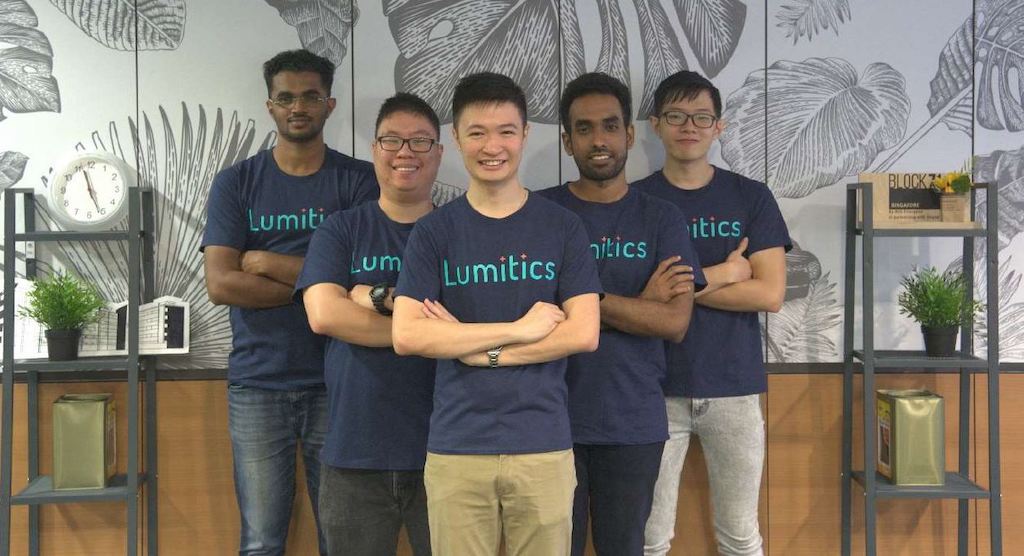4 Mins Read
Singaporean startup Lumitics, a food waste technology company, has recently secured US$557,000 in an oversubscribed seed funding round. The financing was led by boutique early stage investment firm ReadyVentures and angel investor and hospitality veteran Franck Courmont. Lumitics’ proprietary device is called Insight, a smart waste tracker that uses sensors and image recognition to identify what restaurants and commercial kitchens throw away in order to target food waste reduction. With the new capital, the company is aiming for regional expansion to tackle the issue across the Asian region, home to over half of the world’s food waste.
Food waste startup Lumitics has announced the completion of a US$557,000 seed funding round, which was co-led by Singaporean early stage investment company ReadyVentures and hospitality business angel investor Franck Courmont. Other participating investors include Singaporean tech venture firm Startup-O and Louise Daley, deputy chief executive of Accor Hotels Asia Pacific, who invested privately.
Lumitics was founded in 2017 by Rayner Loi and Keshav Sivakumar, two undergraduates who met during an accelerator programme in Singapore.
Previously known as Good for Food before being renamed Lumitics in 2019, the startup’s flagship solution is Insight, a smart food waste tracker that employs sensor technology and proprietary image recognition to weigh and identify the type of food commercial kitchens throw away.
The device can be integrated with any standard rubbish bin already in use in kitchens, and will automatically generate data, which gets sent to a cloud dashboard.
Using this information, hospitality and F&B businesses are enabled to identify and target what foods to reduce from suppliers, which will ultimately help save costs as well.

With the fresh round of capital, the startup hopes to further improve product development, expand within its Singapore market share and bring their food waste solutions to other regional markets in Asia.
While Lumitics says that they will remain focused on tackling food waste within the hospitality and F&B industry, the company might also expand to other businesses including airlines, hospitals and schools.
“We have been partnering with industry players and, where relevant, have tweaked our solution to better meet their needs,” said Lumitics co-founder and CEO Rayner Loi.
Lumitics has previously received grants from Singaporean government-backed non-profit Temesek Foundation Ecosperity and Enterprise Singapore, which is supported by the government’s Ministry of Trade and Industry.
Additionally, they have been helped by the NUS Enterprise, the entrepreneurial branch of the National University of Singapore, and regional incubator BLOCK71 as well.

Food waste is a massive issue in Asia, the region producing over 50% of the world’s discarded waste. The main culprits are industrialised urban cities and areas, such as Singapore, Hong Kong, Jakarta, Shanghai and Seoul.
While many in the world are facing food insecurity and everyday hunger, much of the food that is discarded is not just landfilled but is incinerated, a process that releases huge amounts of greenhouse gases that drive our climate crisis.
According to the NEA in Singapore, some 810,000 tonnes of food is thrown out each year, and disposed food makes up the second largest waste stream for incineration in the city.
Individual household food waste does indeed fuel the problem, but it’s large hotel chains and commercial kitchens–especially those serving buffets–that are the major culprits of excessive discarding of fresh food.
Recent Singapore national data revealed that hotel kitchens throw away around 25% of all the food that passes through them. In the United Kingdom, startup Winnow has developed a similar technology to track and log food waste in hotel chains through a smart image recognition device. However, while Winnow shares with Lumitics the goal of eliminating food waste in restaurant and hotel food service, there are key differences as Winnow’s technology involves a separate bin, scale and tablet device, Lumitics offers a one-fit solution for existing bins in kitchens.
Explaining the edge that Lumitics’ design provides, the company’s investor and partner Franck Courmont said: “Our solution is much simpler as it fits on top of the bin, wherever the bin is located. [It] is totally portable, mobile, cordless…Zero manual input, no tablet.”
Whilst waste-tracking technology looks to fight food waste in commercial kitchens, other companies in Asia are coming up with alternative solutions. Some firms in Japan, for instance, are exploring the use of weather data to reduce food waste at source. Sagamiya Foods has used this technology to predict sales, which are affected by temperature forecasts, in order to make only as much as consumers demand and reduce surplus production and waste.
February 2020 Update: This article has been updated to reflect the distinct technology Lumitics offers.
Lead image courtesy of Shutterstock.




